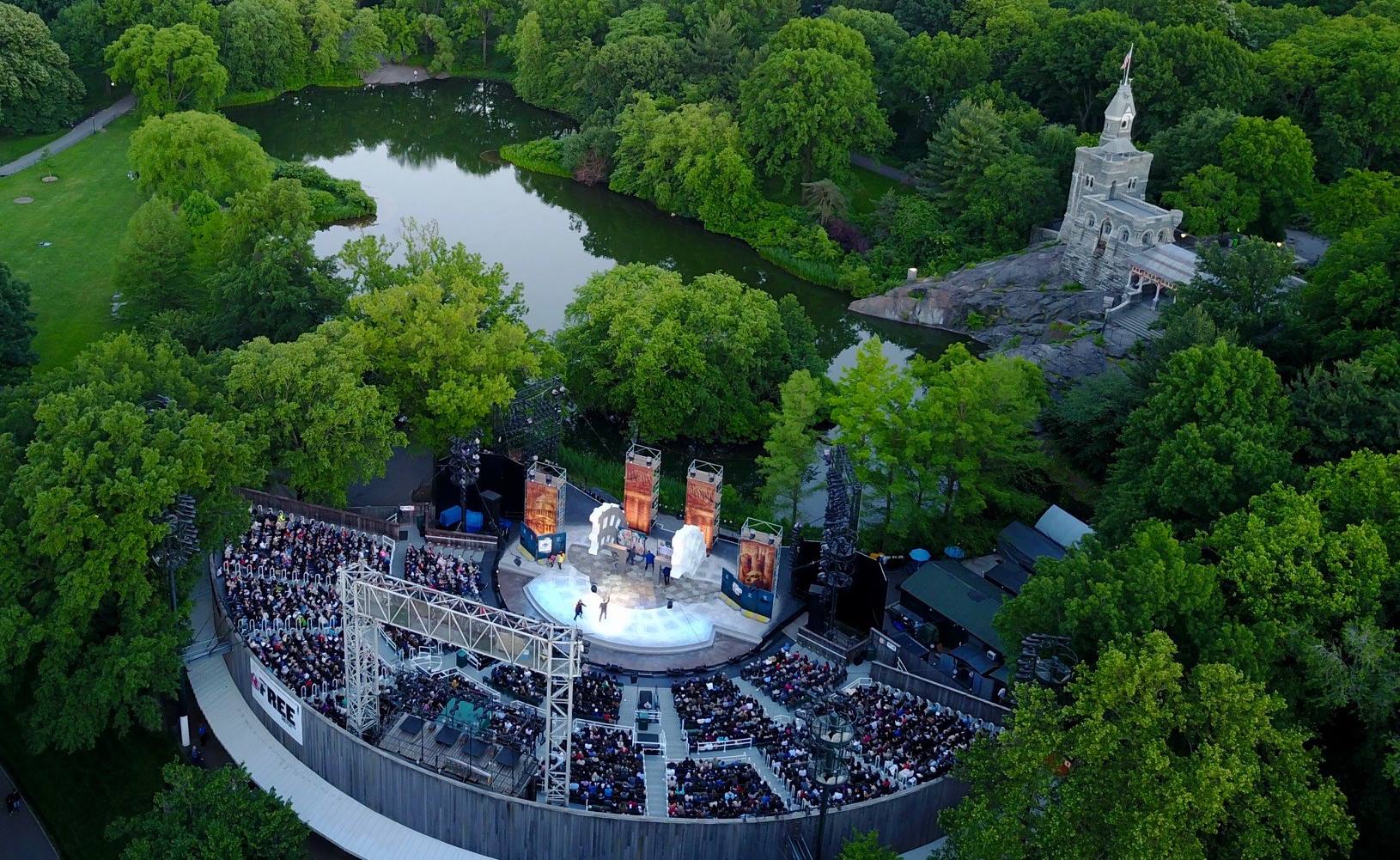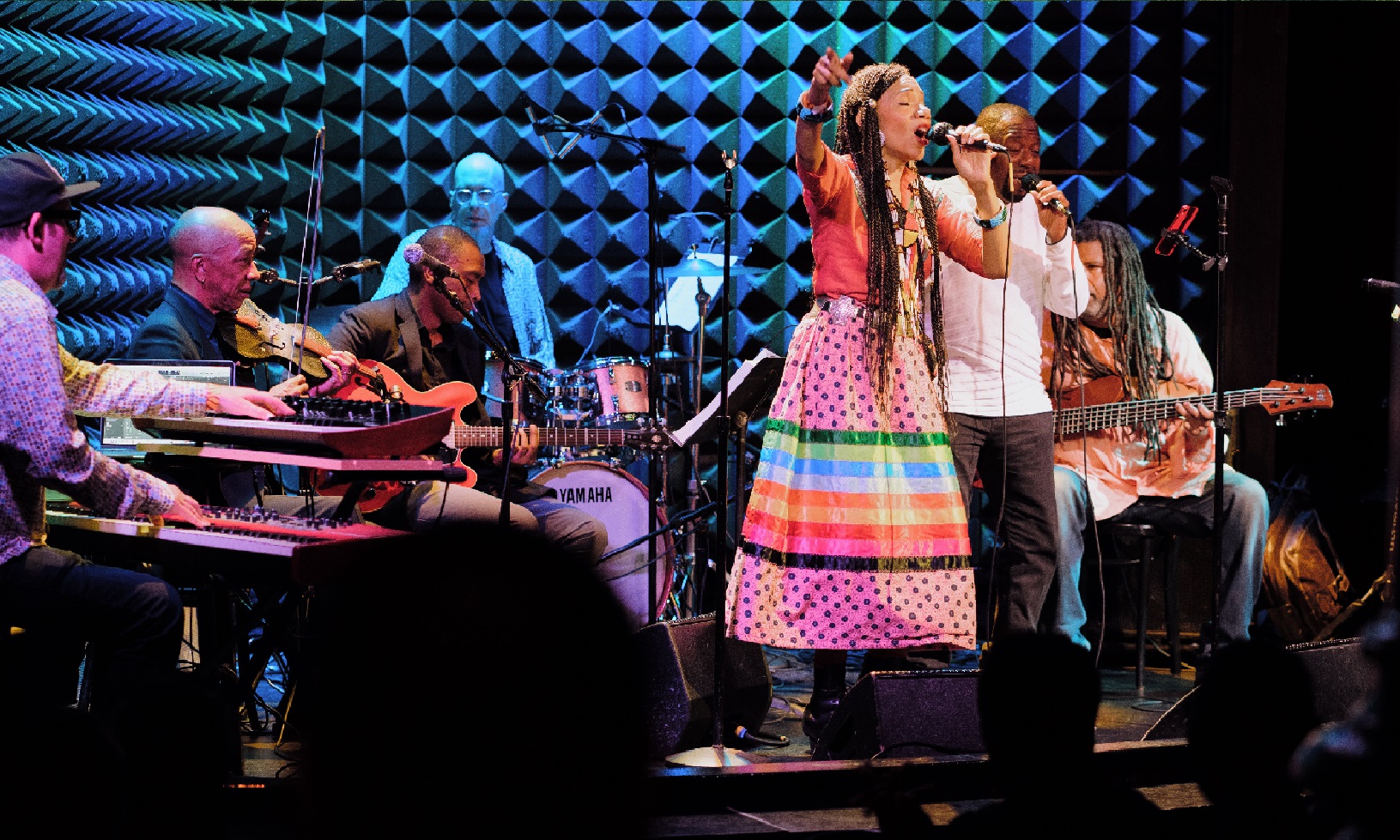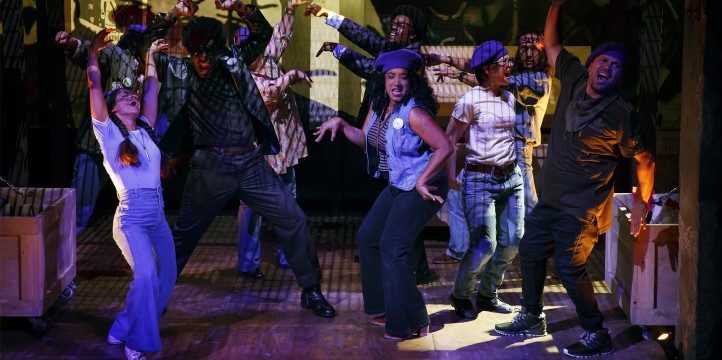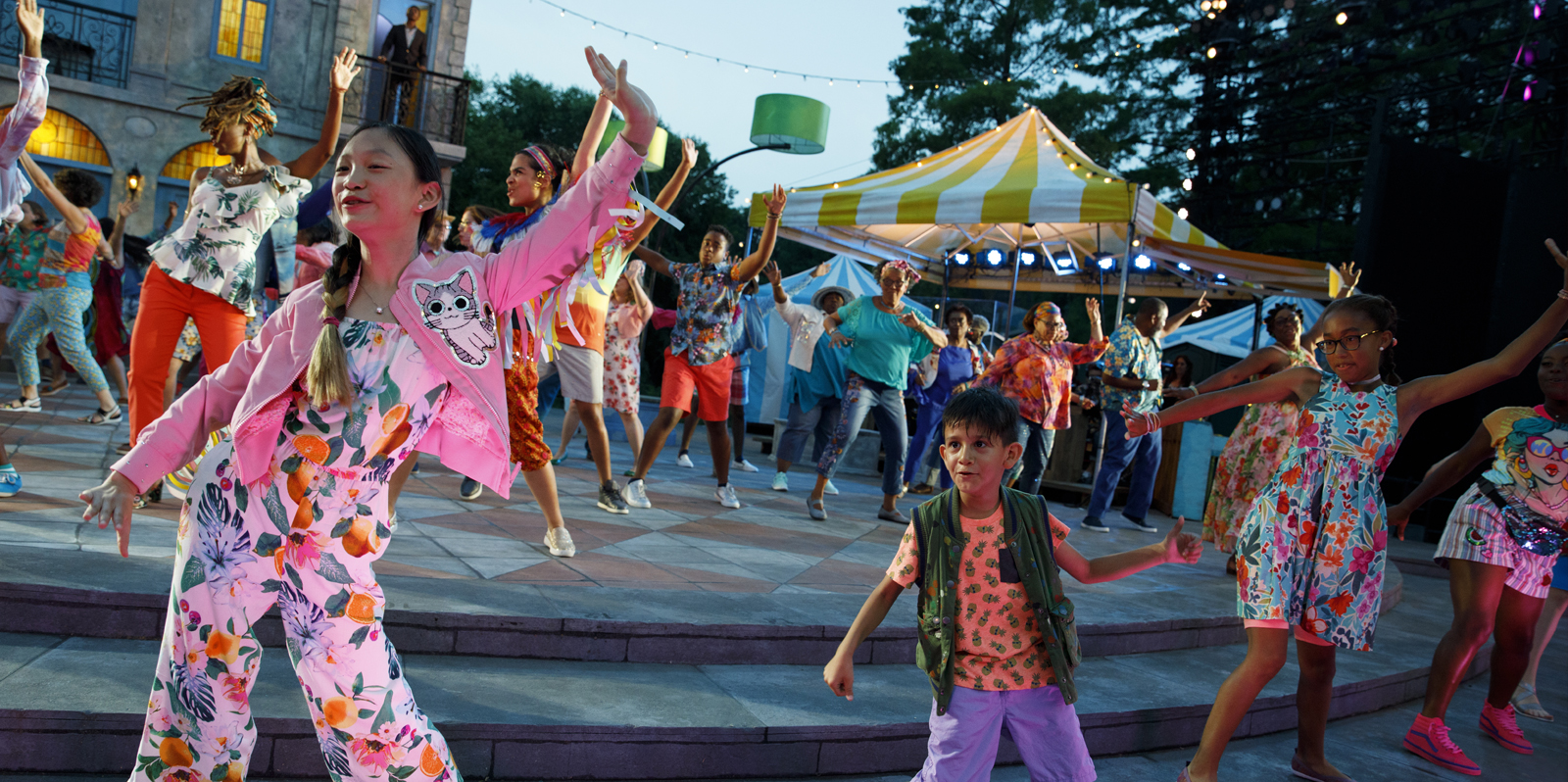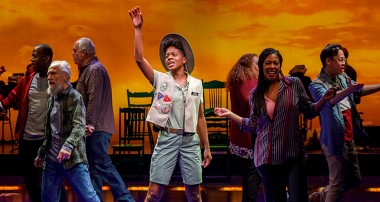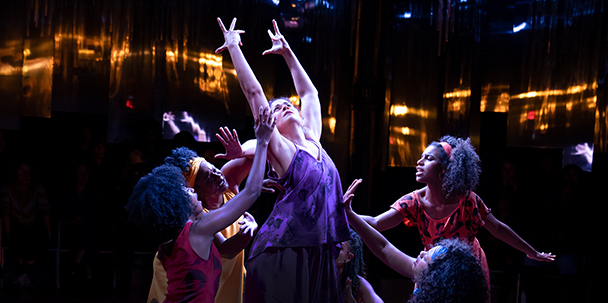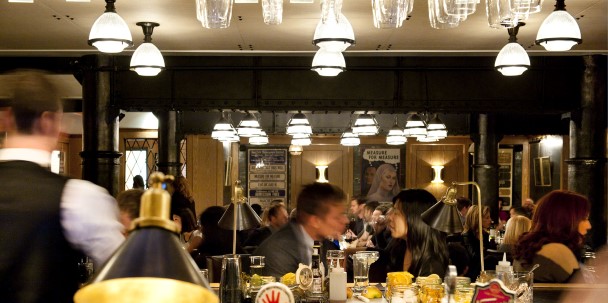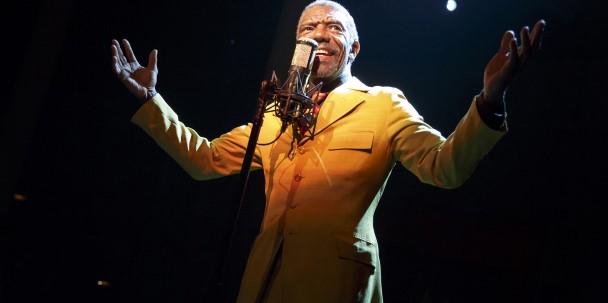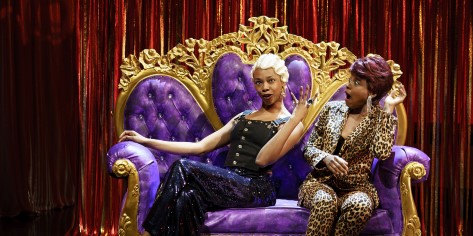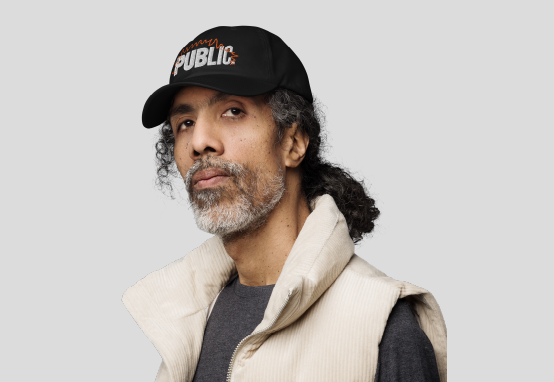The play gives voice to those who have become mere numbers when reported by the media. More importantly, THE VAGRANT TRILOGY brings specificity into the Palestinian experience, acting as a magnifying glass that looks with special detail at all the intricacies of being Palestinian.
“There were many historical events that Palestinians feel in their bones. Dates, words, declarations, and pieces of paper that changed their lives and their families forever. Understanding those has been integral to my process,” says Ashe, who is Iranian-American and learned Arabic for the role.
Mansour’s work does not exploit trauma but instead brings the audience closer to a community that is widely misunderstood and stigmatized. At its core, this play returns humanity to a community that has been dehumanized, whose pain is often invisible and whose resilience in order to survive is wrongly labeled as subversive.
“It seems like such a low bar, isn’t it? For the takeaway to be a lesson on the humanity of Palestinians…but an understanding of the struggle is important. It’s a lesson on how politics and circumstances can transform your life in an instant. It’s universal. Trauma [in communities that go through war] is in their DNA, it’s intergenerational.” says Faragallah.
THE VAGRANT TRILOGY asks the audience to look at these characters by all their complexity, in their joy, their anger, their disillusion. It asks them to consider the roads not taken, choice as a luxury, resilience as nothing but remaining open to love and forgiveness. Above all, it begs us to not forget the dreams of this Palestinian family, of all Palestinians.
“It always felt important, it always felt necessary to tell a Palestinian story. It felt important 11 years ago, and it continues to feel important. I hope the audience comes to see it with an open mind,” Ashe says.
Mansour’s outstanding storytelling is changing the landscape of the American theater. Her rich writing challenges us to hold multiple truths at the same time, in this case, that the existence of extreme hardship is part of the Palestinian experience, yet it is not suffering that marks their identity, but rather the unwavering hope that lives inside of them, and that perseveres as their legacy.
As her last thoughts, Ashe adds, “Something that I’m cognizant of is that I don’t want this play or any play about the Middle Eastern experience to elicit sympathy. I would like it to elicit empathy. Hopefully there will be more understanding about what happened to this particular man and his family, and maybe it will make you see [that it] is not as far from you as you think. If the audience can take this home with them, I think we’ve succeeded.”
THE VAGRANT TRILOGY is now playing at The Public Theater through Sunday, May 15.
Ángela María Ramos is an actor/songwriter/writer born and raised in Colombia of Italian descent. She has debuted and performed her original music and writing Off-Broadway and Off-Off Broadway. She has also performed for the Nobel Women’s Initiative, the Women’s International League for Peace and Freedom and the National Abortion Campaign in Colombia. Ángela is heading to pursue her MFA in Acting at Meadows School of the Arts in Southern Methodist University as part of the Class of 2025. She stands in solidarity with all Palestinians who have perished in their quest for liberation.
This piece was developed with the BIPOC Critics Lab, a new program founded by Jose Solís training the next generation of BIPOC journalists. Follow on Twitter: @BIPOCCriticsLab.
PICTURED ABOVE: Tala Ashe (left) and Hadi Tabbal in THE VAGRANT TRILOGY
PICTURED BELOW: Hadi Tabbal (left) and Ramsey Faragallah in THE VAGRANT TRILOGY
both photos by Joan Marcus


